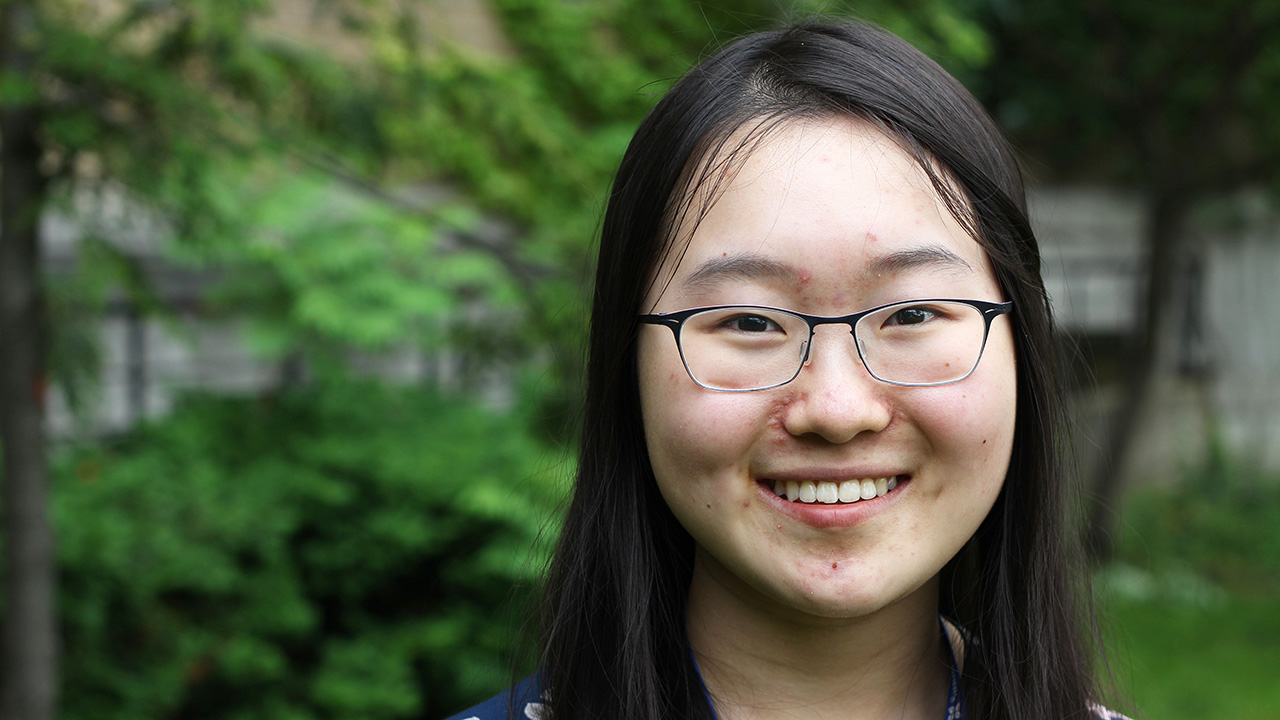Hitting a different note
There are certain people whose interests and skills stem from starkly disparate domains. Megan Lam is one of them.
The Western University student and accomplished pianist is spending the summer in the LC Campbell Cognitive Neurology Research Unit at Sunnybrook Research Institute (SRI) under the supervision of Drs. Sandra Black and Donald Stuss. Lam, along with roughly two dozen other bright young minds, was awarded a 12-week placement at SRI through the D+H SRI Summer Student Research Program. Her work is centred on patients with Alzheimer’s disease and a family of drugs called cholinesterase inhibitors (CHIs), used to improve memory and attention.
Speaking about her research, Lam says, “I’m specifically looking at how treatment with CHIs can affect verbal fluency in individuals with Alzheimer’s disease, and how lesions in certain tracts in the brain can influence different measures of verbal fluency. I’m also looking at how the correlation between lesions and cognitive performance changes with treatment.”
Lam notes that her tasks vary on a daily basis, but some of her work entails analyzing “MRI scans to identify where the tracts are and then looking for hyperintensities, which show up in MRI images as white spots.” Once the hyperintensities have been revealed, if they do exist, Lam uses a visual rating scale to grade them depending on their location and severity; a higher score may indicate an increased risk of cognitive decline.
When asked to elucidate her interest in the brain, Lam, who has aspirations of becoming a doctor, refers to the unexplained aspects of the organ. “The brain is so unknown, and there’s so much mystery behind it. We don’t understand so much about something we use every day,” she says.
Inspiring her desire to further explore the perplexities of the brain is Sunnybrook’s esteemed staff, specifically Black and Stuss. Chiefly addressing her supervisors, Lam says, “They have such a passion for the field and it really translates to the team. Every time I interact with them I feel more invigorated and excited to do the work that I’m doing.”
As deep as Lam’s fascination is with neurology, it’s not her only interest; she’s also an advocate for youth mental health. This past year, she was the director of events for Active Minds UWO, an organization at her university that raises awareness about the resources available on campus for young people confronting mental health issues. A passion for the topic emanates from her as she speaks. “It’s one of the biggest problems the health care system has to face, which is why it’s important to address it when it first starts. If you can help someone when they’re young—18 or 19 years old—you’re helping them for the rest of their lives. You’re setting that foundation.”
Research and mental health advocacy aside, one can’t help but be impressed by Lam’s accomplishments with an instrument unlike any found in a lab: the piano. Lam achieved her ARCT, which she equates to an associate diploma, from Toronto’s Royal Conservatory of Music when she was only 12 years old. She says pianists usually reach this stage when they’re in university. As if that wasn’t enough, Lam went on to do her pedagogy—the equivalent of a teacher’s diploma—when she was 16 years old. “It was quite a lot of work and caused me to mature a lot faster. Those experiences at such a young age really shaped the way I view other people and myself,” she says.
Lam’s determination to master the piano began at the age of four when her parents introduced her to the instrument. She fell in love with it, and chuckles as she says her desire to surpass her older brother’s musical achievements fuelled her commitment.
Come September, she will apply the same unwavering dedication to her second year in Western’s medical sciences and scholar’s electives programs. The latter is an additional component to a typical undergraduate degree and enables students to tackle a research project. For hers, Lam will be paired with a mentor to study human immunodeficiency virus.
Her tenacious work ethic—evident by her 100% average in Grade 12 and distinction as York region’s top scholar—will be put to good use this summer. Lam is driven to establish a connection between the use of CHIs and verbal fluency in Alzheimer’s patients. Demonstrating wisdom beyond her years and an appreciation for research, however, she smiles as she says she would be satisfied if a correlation doesn’t exist. “Even if there isn’t [a link], that’s still worth finding out.”
After all, it’s not just about the results. “Learning how the process works in research, how to write papers, how to create posters and present them, how to work with others in the lab—these are all general skills I’d like to learn and feel like I am learning,” she says.
Megan Lam received a D+H Summer Studentship Award.



